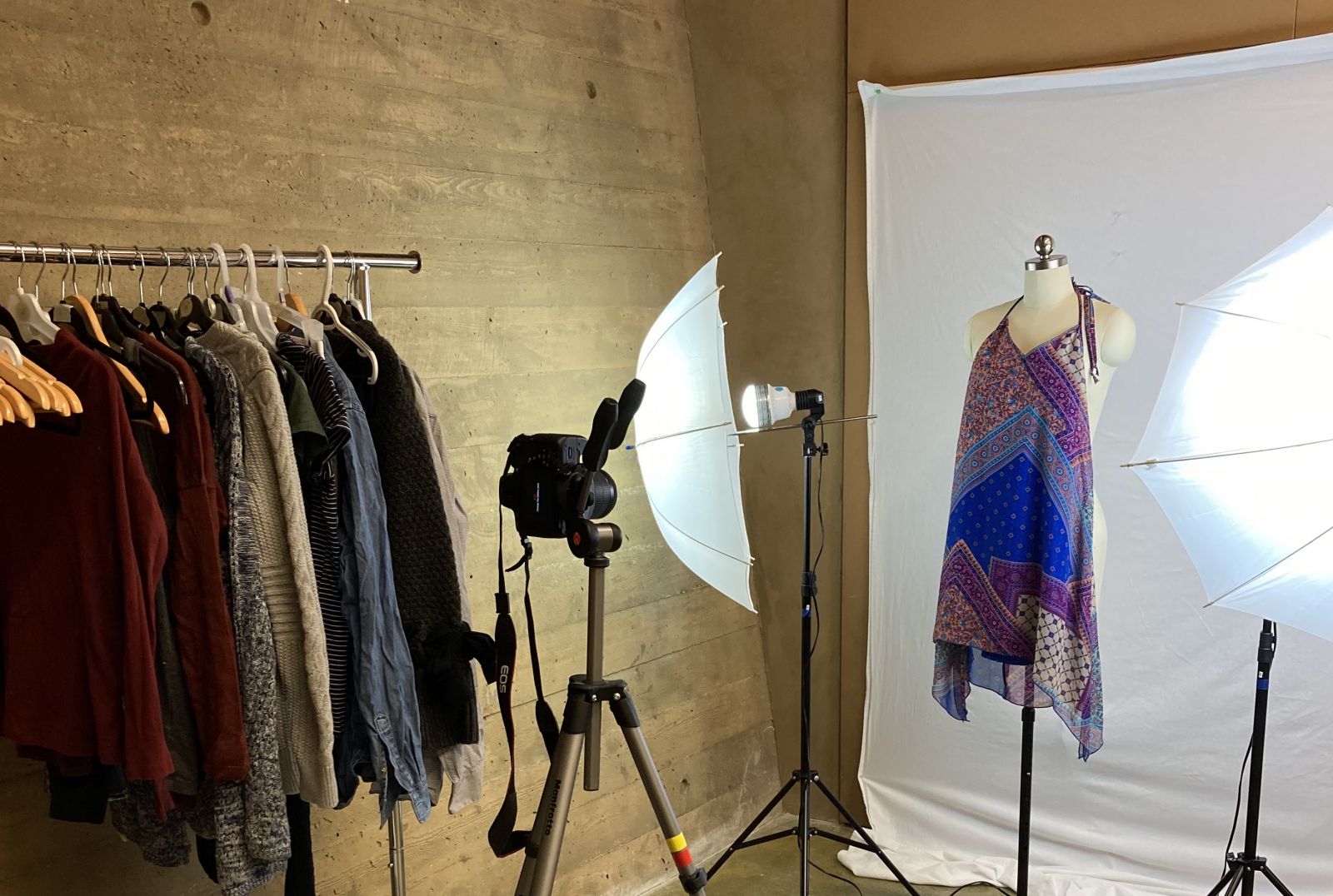
Anyone who has sought to encourage sustainable behaviors in others knows that success often hinges on one simple question: Is it easy? When choosing the sustainable option is convenient—whether related to food, energy usage, waste, or transportation—it’s more likely someone will choose to do it.
So when Yale undergraduates Alexa Loste ’24 and Emilia Oliva ’24 wanted to devise a way for Yale students to buy, sell, and donate used clothing—to combat the environmentally destructive “fast fashion” industry—they focused on convenience, as well as affordability and equity.
Loste and Oliva are the cofounders of Common Closet, a student-run clothing exchange and donation service. The students launched it last spring as a one-month pilot in Stiles College, where they serve as Sustainability Liaisons. After a successful trial run, they are now working to make it an independently-run program, with the hopes becoming a permanent service for Yale College students.
Loste and Oliva share a passion for sustainability and for thrifting, and have observed a shift toward “conscious consumption” among their peers as the damage wrought by the global fashion industry has become painfully clear. They started Common Closet to reduce clothing waste on campus and promote student participation in the circular economy.

Common Closet donors can drop off clothing at locations in their residentials colleges, where they are then sorted, inventoried, photographed, and posted for sale on a website—all by student workers. Sellers receive 70% of the sale price, with the remainder pooled to provide first-generation low-income students a flat discount rate on their clothing purchases. Students can also designate clothing for donation to the New Haven nonprofit Loaves and Fishes.
It’s a process meant to take the guesswork out of making sustainable fashion choices—and that’s by design. “We are trying to create the pathways for people to make sustainable choices in their everyday lives,” says Oliva.
During its four-week trial last spring, Common Closet consigned over 600 articles of clothing (generating $1,700 in sales) and donated another 500. Using a formula created by the online consignment store thredUP, Loste and Oliva calculated that Common Closet’s sales translated to 6,786 fewer pounds of CO2, 13,260 fewer kWh of energy, and more than 30,000 fewer gallons of water compared to what’s needed to produce new clothing.
“We wanted to have measurable data to present to Yale leadership,” explains Loste. “We use these metrics to communicate to people why this project is important.
“This project is as much about climate justice as it is about social justice,” adds Loste. “Fast fashion is not only bad for the environment, it also perpetuates exploitative labor conditions. Through Common Closet, we want to provide an alternative more affordable than ethical clothing brands and more sustainable than fast fashion brands.”
Common Closet recently relaunched for the fall term with a fresh batch of clothing (student workers processed 140 articles of clothing in a recent weekend) and the group is planning new events for the fall, including a pop-up sale and a repairs/alterations workshop. “It’s fun to see other people bring their enthusiasm and ideas to what this project can be,” says Oliva.
Each month, Yale Sustainability features a ‘Sustainability Champion of the Month’—a student, staff, or faculty member who is leading the charge toward a more sustainable campus. If you know a sustainability champion at Yale, email sustainability@yale.edu and tell us about them.